Cost of living: Inflation pressures squeezing food producers
- Published
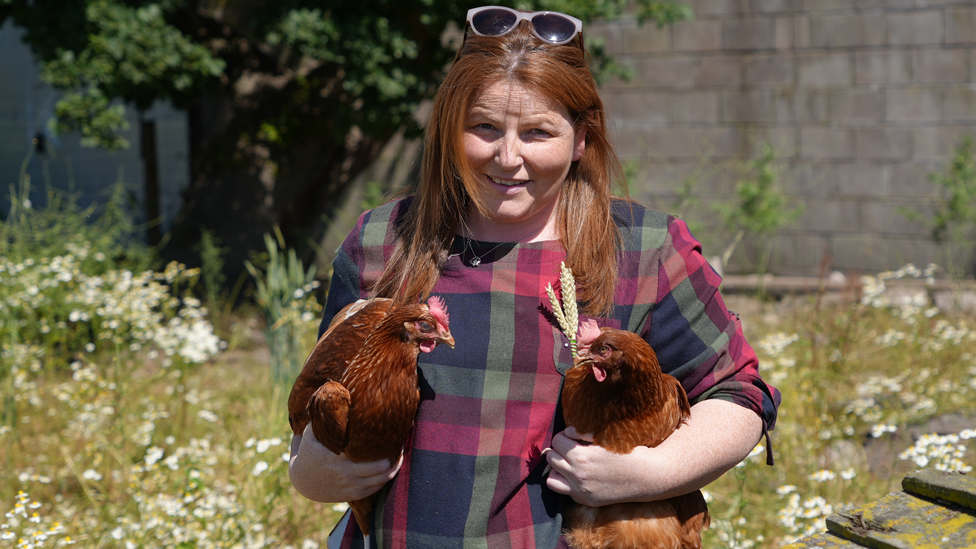
Victoria Shervington-Jones says she has never seen pressures like she's experiencing now
Soaring costs are threatening to put some Welsh food producers out of business, farmers have warned.
The latest inflation rate figures show prices are now rising by 9.1% in the year up to May, their highest level for 40 years.
The knock-on effect is being felt by producers, and egg farmer Victoria Shervington-Jones warned of shortages of eggs as farms go bust.
A supermarket boss said shoppers were buying less as prices rise.
Prices of fuel and food are affecting household budgets, but the same pressures are hitting farmers as they rear animals and grow crops.
Fertiliser, animal feed and diesel costs mean some farmers are losing thousands of pounds a month, while some are planning to produce less food in order to offset their rising bills.
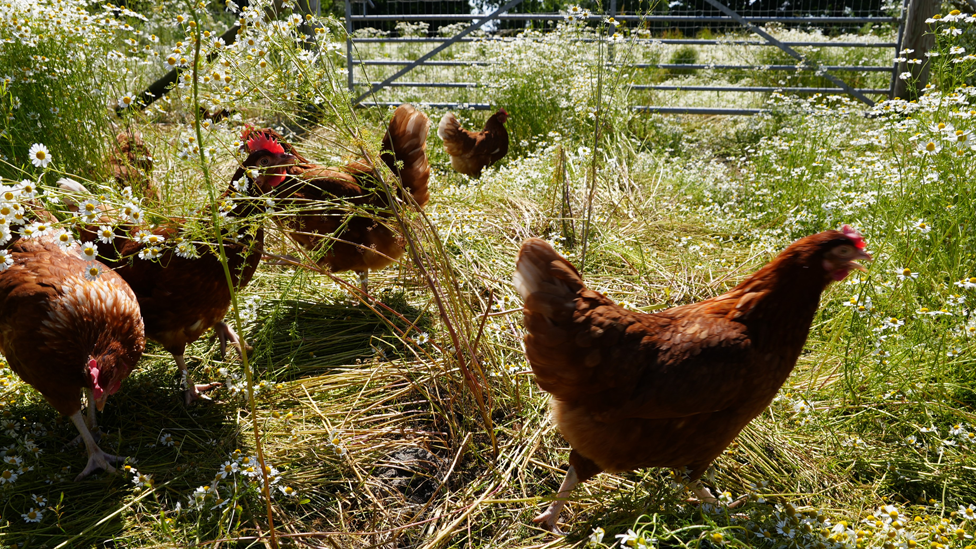
Rising costs for chicken feed is one of the issues
At St Brides Wentloog, near Newport, there are almost 40,000 hens laying eggs at the farm run by Ms Shervington-Jones.
They produce almost as many eggs every day, which are delivered to restaurants, supermarkets, corner shops and hotels, including the Celtic Manor.
"I've been running it for 15 years now," Ms Shervington-Jones said. "I inherited it when my dad passed away. I've been here all my life."
But the farm has never known price pressures like those seen currently.
"Our three biggest increased costs at the moment would be diesel, packaging and chicken feed," she said.
"Chicken feed has doubled in the last year. Diesel is just ridiculous, and our electricity to run the chicken sheds - it is quite frightening how much everything has gone up recently."
The price of an egg has not risen as much as the costs facing Victoria and other farmers, and the only option facing some farms is to spend less and cut production.
"We've just got to ride it out, hope it improves, and that we can survive on the other side," she said.
Ms Shervington-Jones fears other farms may not last as long.
She said: "There are a lot of egg producers going out of business at the moment because they can't afford to keep going.
"So there's an anticipated shortage of eggs in the autumn, and meat and other things within the industry. There will be shortages on the shelves, but by the time it gets there, it will be too late to do anything about it by then."
Prices are already rising in supermarkets, though not by enough to cover the costs facing the producers.
The latest figures released on Wednesday show UK inflation edged up to 9.1% in the 12 months to May, up from 9% in April, and is now at the highest level since March 1982. The Bank of England has warned inflation will reach 11% later this year.
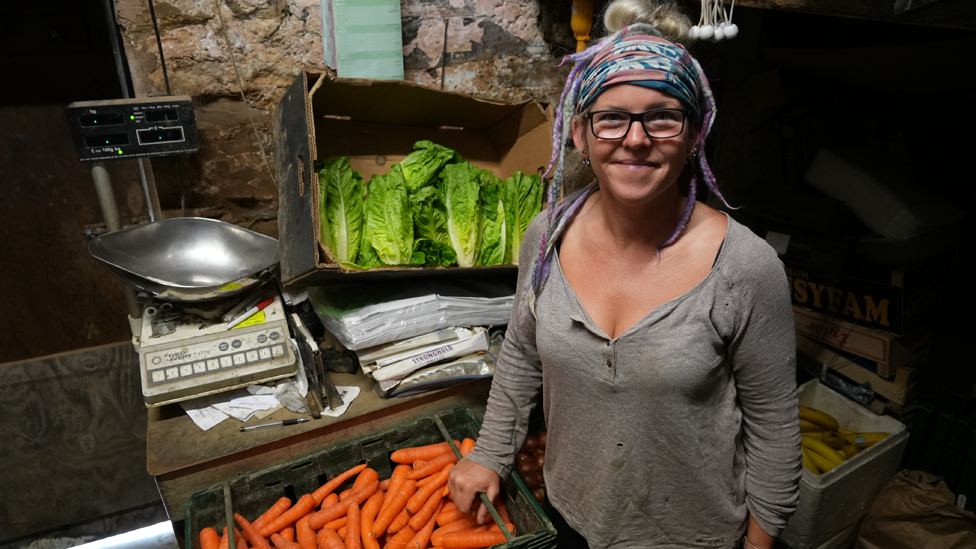
Caroline Hull says customers have been understanding
Caroline Hull works on a farm in Llanllechid near Bethesda, Gwynedd, and helps to grow, harvest and deliver boxes of vegetables to people nearby.
Customers vary between young students in Bangor to vulnerable, elderly people in more remote areas.
Ms Hull said: "I have mentioned that we have had rising costs, and they know that it is across the board.
"We have tried to keep our costs down for the customer, but they have been very understanding.
"It is just the way that it is at the moment, isn't it?"
We have built up the business, no grant aid, all by ourselves. So we don't want to lose it.
Her boss, Chris Jones, has had to increase the cost of a box of vegetables by £1 this year.
The price of a box has only risen by £3 in the past 10 years, but this year the cost of fuel and fertiliser has forced the farm to pass on some of the expense to customers.
"Fertiliser has gone up 300%, diesel in the vans is horrendous," Mr Jones said.
He has doubled the wages he pays to Caroline, who is his only member of staff, and will try to absorb around half of the increased costs his farm is facing.
"We had to do something this year to survive. We have built up the business, no grant aid, all by ourselves. So we don't want to lose it," he said.
At Filco in Llantwit Major, Vale of Glamorgan, the price of milk is reviewed every four weeks, as the company has to support its suppliers while keeping prices low for customers.
"We get regular and repeated requests for cost rises from suppliers, so it is a daily occurrence now. Some things will go up week to week," said Filco director Matthew Hunt.
Mr Hunt said it was "inevitable" some of the increased costs would be passed on to customers.
Spending patterns have changed, too.
"We are adjusting our ranges to suit the demand of the consumer," Mr Hunt added.
The company tracks the average basket cost of its customers.
"That has been fairly steady, which suggests that there is actually a decline in the number of items in the basket because, as we know, prices have gone up," he added.
- Published22 June 2022
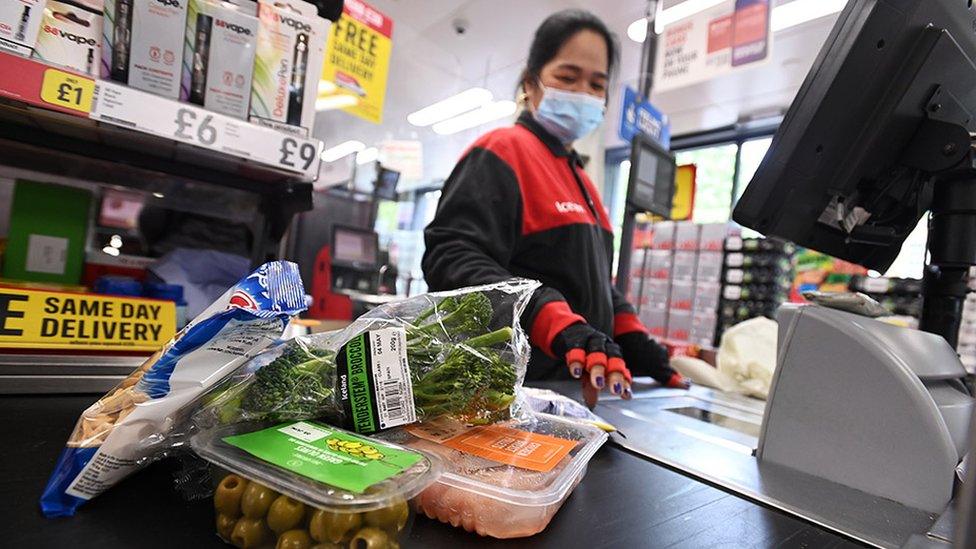
- Published21 June 2022
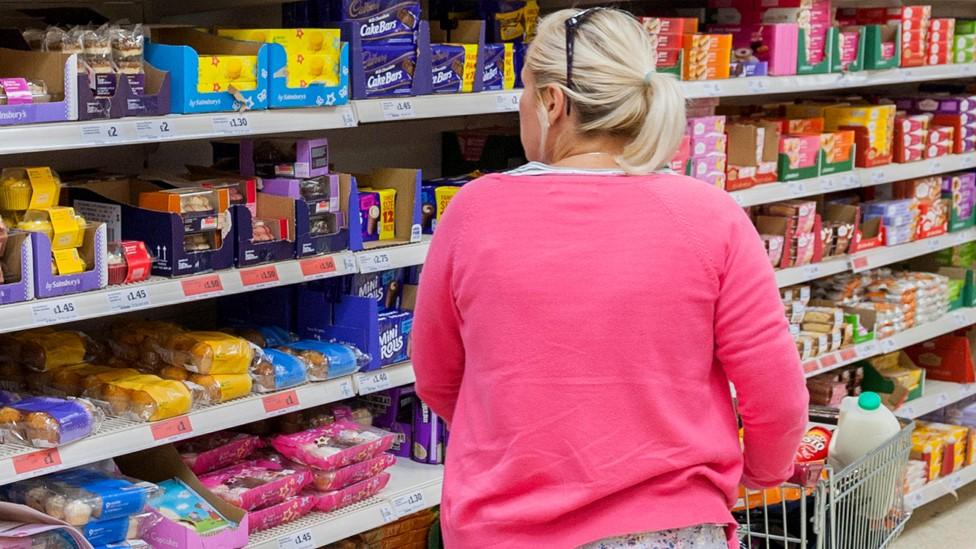
- Published17 June 2022

- Published17 June 2022

